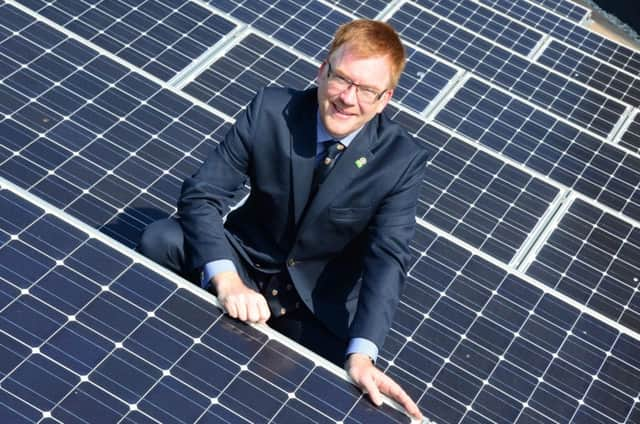‘Light-bulb moment’ for energy in Bucks


The authority is exploring the potential for a ‘delivery body’ to realise the initiatives set out in its new energy strategy, which has now been adopted by cabinet.
It aims to increase the amount of renewable energy generated in Bucks, which currently stands at just 3.2%.
Advertisement
Hide AdAdvertisement
Hide AdSmall scale community initiatives are envisaged, with the council working with community interest company Low Carbon Chilterns on projects such as roof-mounted solar panels at schools and community buildings.
An initiative already completed – the installation of biomass boilers in eight county council premises – is expected to bring in around £180,000 a year from heat sales and the Government’s renewable heat incentive.
The ‘Energy from Waste’ plant at Calvert will generate 22 megawatts of electricity once it is on-stream in 2016. This is enough to power a fifth of the county’s homes.
Warren Whyte, cabinet member for planning and environment, said: “This strategy is a light-bulb moment for us,’ he said. ‘Generating electricity and heat not only reduces our costs, but there are real opportunities to generate revenue from our own energy.
Advertisement
Hide AdAdvertisement
Hide Ad“Changing the way energy is generated and used in Buckinghamshire is a big challenge and requires long term commitment if it is to be achieved.
“Which is why our strategy sets out a 25-year vision and framework for action, which together provide the necessary certainty and flexibility.”
County Council resource strategy manager David Sutherland said much has been done in recent years to reduce energy bills through its own carbon management plan with projects such as solar panels on the roof of County Hall, installing LED street lights and completing a large building insulation programme.
Last year’s power bill was £6.5 million, a reduction on the previous year of 4.5%.